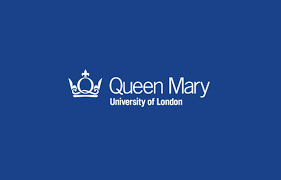Katie Black, Operations and Content Manager and Joe Saxon, Digital Content and Campaigns Officer, work as part of the Careers and Enterprise, Queen Mary University of London. Here, they share some of the challenges they faced during the first few weeks of lockdown and how they responded.

Katie Black 
Joe Saxon
The team’s mission is to develop the employability of Queen Mary University of London students from their arrival at the university until two years after graduation. The team consists of 35 members of staff, working in partnership with academic schools and employers to provide an inclusive portfolio of career support and opportunities to Queen Mary students and graduates.
Like most other educational institutions, as lockdown began, they had to quickly adapt to working remotely and delivering their suite of career services virtually.
The Challenge
This is a very unsettling time for everyone, but it is particularly challenging for the thousands of students and graduates across the country who will not know what Covid-19 means for their employment prospects. A recent survey of 179 graduate employers reported that respondents planned to recruit 12% fewer graduates, 32% fewer apprentices, and school leavers, and 40% less interns and placement students than they were before the Covid-19 crisis [1]. Many students have gone through a competitive application process for a summer internship programme or graduate scheme, only for their offer to have been postponed, changed, or withdrawn entirely. The full impact of Covid-19 on recruitment strategies and the employment market as a whole is still very uncertain, but we are aware our service users are looking to us as Careers professionals to be the voice of expertise and knowledge to help them navigate this new and changing world.
How we responded
At the beginning of lockdown, we worked quickly to adapt our full suite of services so that students could access them online, for example converting our careers guidance appointments to Skype and transitioning our work experience programmes to virtual delivery.
However, our main objective as a team was to ensure that our students and graduates knew that we were still around to support and guide them, even though they couldn’t physically reach us in the office.
We decided the best way to tackle these challenges would be to create a brand new campaign, dedicated and tailored specifically towards supporting our students, graduates, employer partners, and other stakeholders through the Covid-19 period.
We agreed on three key priorities that the campaign would focus on:
- Being the voice of expertise on the labour market;
- Making opportunities available and visible;
- Being a supportive, empathetic, and pragmatic service.
We launched the #AdaptToSucceed campaign on 6th April, two weeks after the government imposed lockdown. The #AdaptToSucceed campaign has its own visual brand and logo, a suite of web pages, and a communications plan.
Campaign Hub
The #AdaptToSucceed Hub is a set of webpages, housed within our main Careers and Enterprise site, where information about our support at this time could be accessed [2]. This hub formed the basis of our communications campaign; not only providing us with a destination to which we could signpost, but a means to identify gaps that existed within our existing content. Highlighted support included:
- Support that we provide as a service (appointments, events, online resources)
- External support (employer-led webinars, news articles)
- Up-to-date advice and guidance (blogs posts, vlogs, labour market information)
Communications Plan
Within the areas outlined above, we identified content that aligned with our priorities and around which we could centre our communications. Our existing communications (such as promotions for ongoing programmes) continued, but with adjusted messaging to take into consideration the changing circumstances.
Being the voice of expertise on the labour market
We developed a weekly vlog series, in which careers consultants and employability advisors presented changes in the jobs market, and signposted to current opportunities [3].
We created a section on our website to collate all labour market information we came across. This was organised by sector, making it easier for students to navigate [4].

Making opportunities available and visible
Our new #AdaptToSucceed Hub went some way in meeting this priority, but additionally, we created a range of graphics highlighting the various support and resources we have on offer, that we scheduled on rotation across our social media platforms in co-ordination with relevant stakeholders (such as university schools and services) [5].
We also began collecting case studies from participants on our various programmes (e.g. this blog post from a QConsult participant), discussing not only the impact of the programme itself but how the move to working remotely affected the experience [6].
Being a supportive, empathetic and pragmatic service
We began building blog posts with our careers consultants and employability advisors that gave timely advice to students and graduates [7]. Topics included skill building at home, where to access online learning and alternatives to traditional internship opportunities.
More recently, we created a simple video featuring various members of our team talking about the different services we are still delivering remotely. Clips were filmed by staff in their own homes.
How students have responded
Since the start of the campaign (6th April) to date, we have seen a 37.9% increase in our reach across Twitter; a 75.9% increase in reach across Facebook, and a 74% increase in views on YouTube. We plan to continue to develop the #AdaptToSucceed campaign for as long as the Covid-19 situation continues, flexing as we go to adapt our services and communications plan in order to meet the changing needs of our students and graduates.
“Looking at blog posts written by other students dealing with the current situation really helped me to deal with the current situation we are facing. It provided support on an emotional level and also on the practical side, at a time where it felt like work was impossible to find (it isn’t, but is definitely more challenging at the moment!)”
Abbie, QMUL PhD Student
Our Top Tips for a Successful Communications Campaign
- Firstly decide on a clear strategy – clarify the key objectives you want to achieve through your campaign, and set out a clear roadmap including responsibilities and deadlines.
- Establish a visual identity for your campaign, being mindful of your organisation’s policy around branding and design.
- Coordinate with other departments/stakeholders to communicate your campaign’s messaging – we suggest creating a communications toolkit so stakeholders can easily work with and adapt your campaign material for their own communications channels and audience/s.
- Ensure you have an open channel for colleagues, clients, and stakeholders to easily provide feedback and ask questions, e.g. an anonymous feedback form or email address.
- Establish a mechanism to regularly analyse the effectiveness of your campaign using web analytics and feedback from stakeholders, implementing change where possible.
Sources:
[1] NCUB.co.uk. 2020. NCUB analysis of the Summer Statement. [online] [Accessed 14/04/21]
[2] Qmul.ac.uk. 2020. Supporting you through Covid-19. [online] [Accessed 14/04/21]
[3] youtube.com. 2021. QMUL Careers and Enterprise. [online] [Accessed 14/04/21]
[4] Qmul.ac.uk. 2020. Online Resources. [online] [Accessed 14/04/21]
[5] twitter.com. 2021. Careers and Enterprise. [online] [Accessed 14/04/21]
[6] qmjobsblog.com. 2020. How taking part in QConsult boosted my employability [online] [Accessed 14/04/21]
[7] qmjobsblogs.com. 2021. QM Jobs Blog. [online] [Accessed 14/04/21]
[8] Youtube.com. 2020. Here To Help You! QMUL Careers and Enterprise. [online] [Accessed 29/04/21]
Register FREE to access 2 more articles
We hope you’ve enjoyed your first article on GE Insights. To access 2 more articles for free, register now to join the Government Events community.
(Use discount code CPWR50)




